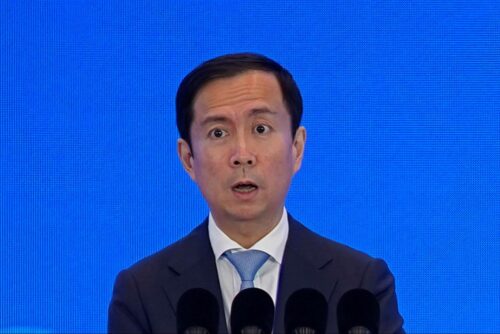Alibaba-backed battery-sharing startup Energy Monster files for U.S. IPO
Energy Monster provides power banks on demand for Chinese customers to charge their mobile phones in shopping malls and other places where people run out of power. Now the Alibaba-backed company has filed for a Nasdaq IPO.

Energy Monster, a leader in China’s mobile device power bank rental market, has submitted an application to go public on Nasdaq.
The Shanghai-based startup did not specify how much money it wants to raise in the upcoming IPO, but revealed in its prospectus submitted to the U.S. Securities and Exchange Commission that it had just raised $234 million in a Series D round of fundraising in January.
- Energy Monster closed the latest round ahead of the planned IPO this January, which was led by Goldman Sachs, Citigroup Global Markets Inc, China Renaissance Securities, and BOCI Asia.
- Alibaba is Energy Monster’s largest stakeholder, with 16.5% of ownership, followed by other investors such as Hillhouse, Shunwei Capital, SoftBank Asia, and Xiaomi.
As China’s largest mobile-device-charging service provider, Energy Monster said it plans to use the new funds from the IPO for business expansion, talent recruitment, deploying more power banks and charging stations, and exploring mergers and acquisitions.
- Founded in 2017, Energy Monster came late compared with its current major competitors –– Jiedian 街电 and Xiaodian 小电. But the company concluded three funding rounds within nine months of its founding amid the sharing-economy boom, and raised over 300 million yuan ($46 million).
- Energy Monster said it now has over 219 million registered users and has installed over 664,000 power bank rental kiosks across China. The company was hit by the pandemic early last year, but its overall revenue of 2020 climbed nearly 40% to 2.8 billion yuan ($430.5 million) and generated a net profit of 75.4 million yuan ($11.6 million).
Battery-sharing companies like Energy Monster deploy table-mounted charging stations with portable chargers in public places, including restaurants, bars, hotels, entertainment venues, and convenience stores.
- Users can scan a QR code to unlock the power banks from the charging stations, and pay one to four yuan (15 to 60 cents) for 30 minutes to an hour of use.
- Users typically need to pay a deposit of around 100 yuan ($15) to rent, but some waive the fees for those who have good scores on Alibaba’s personal credit-ranking system, Zhima Credit.
Energy Monster has 34.4% market share by gross revenue as of the end of 2020, according to the company’s prospectus, but competitors are not far off:
- Xiaodian said (in Chinese) it has nearly 200 million users and is also preparing to go public after it signed (in Chinese) a pre-listing tutorial agreement last July for an IPO in Shanghai’s STAR market.
- Food delivery giant Meituan, which also owns multiple on-demand businesses such as bike sharing, joined the battery-sharing market early last year and launched its own power-bank-sharing services on May 1.






